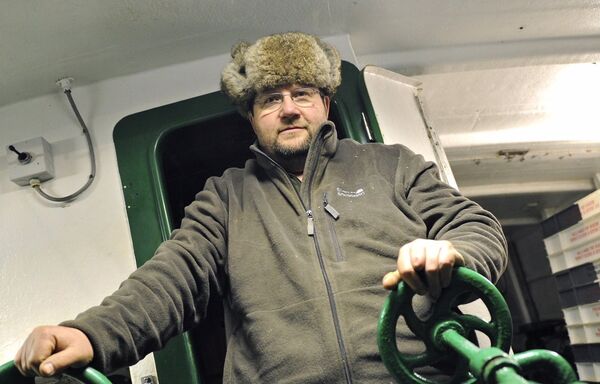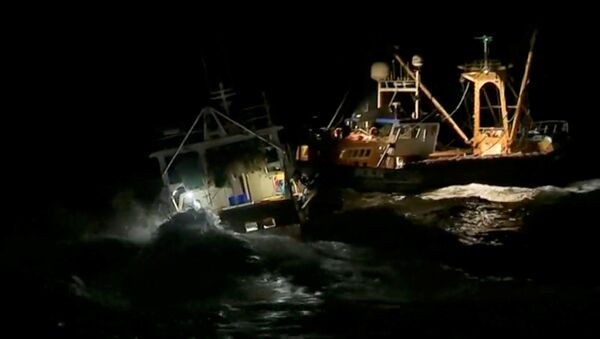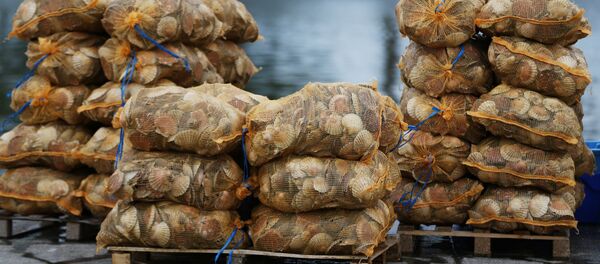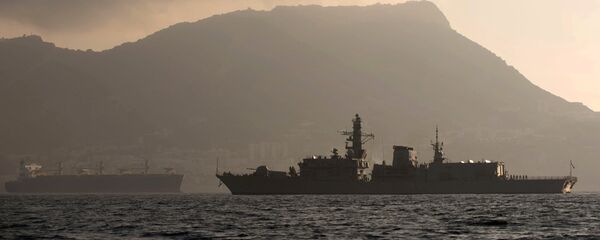Speaking to Sputnik France, Dimitri Rogoff, a fisherman and president of the Regional Committee of Normandy Fisheries, said his British counterparts were largely to blame for the "scallop wars," a bizarre territorial fishing rights dispute which flared last month and led to incidents of vessels ramming one another, and even threats of intervention by the French Navy.
"The insatiable appetites of the British led to the impossibility of an agreement," Rogoff said.
The French, who refer to scallops as "white gold," consume about 150,000 tons of the delicacy every year. According to the fisherman, scallop fishing in the English Channel has been an apple of discord between Paris and London going back decades.
The first real hiccup over the issue occurred in 2002, Rogoff said, "when a large, 33 meter Dutch fishing boat began fishing all over" the channel. "French authorities, under the pretext of 'security,' expelled the unwelcome 'guest' from the fishing areas, but the Dutch vessel was replaced by the British, who put more and more boats in to strengthen their own fishing effort."
In 2012, a flare-up similar to the ones observed in recent weeks took place, the fisherman noted. At that time, the two sides managed to come to an agreement on scallop fishing in international waters. However, that deal did not cover small ships. Some British fishermen, according to Rogoff, have resorted to modifying their boats to ensure that they do not exceed the size limits.
"We tried in vain to convince our British colleagues to expand the agreement," the fisherman complained. "They showed indecisiveness, which in turn led to the skirmishes which happened a week and a half ago. Fisherman can only express their protest at sea; they have no other recourse."
Furthermore, he said, complications caused by Brexit are also an issue. "The British fishermen are testing their political leaders, saying 'how are you going to react to this situation?' There is a populist aspect here," he said, referring to the traditional French-British rivalry.

Ultimately, Rogoff stressed that the current situation, in which the British are attempting to stake their claims based on European law, was "totally surreal." "They're going to leave the European in six-months' time!" he stressed.
In the union representative's view, the French approach to scallop fishing, which is based on effective management and the conservation of resources, is superior to the unregulated British approach. The fisherman pointed out that in protected areas, including France's territorial waters, which are not accessible to British ships, French fishermen "are achieving great results" in sustainable scallop fishing.
According to Rogoff, the "regulation of catching in the Seine Basin and its outer boundaries, including the introduction of a calendar of opening dates and quotas would all directly benefit the British, who have no rules."
In the fishermen's view, "the French side put forward [a] minimum requirement: that both sides start fishing at the same time, and neither side starts before the other."
"But we did not get it," he complained, stressing that Brexit has made negotiations difficult, with the British demands becoming larger and larger.
"It can't be excluded that this long-running conflict will be decided in another way," Rogoff said, adding that it definitely should not be via battles at sea between the two countries' fishermen.
"I don't want to see guys lose their lives over this," Rogoff stressed, pointing out that other options exist, including a boycott of English-caught seafood, which is largely dependent on the French market as things stand. In this way, France's fisherman can take a lesson from French farmers' efforts to defend their market, the Normandy fishing representative concluded.





